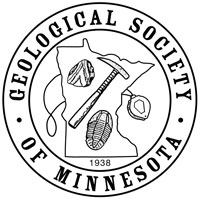Seminar Lab Date:
Seminar Lab presenter:
Seminar Lab Subject:
Seminar Lab Location :
In-person only at U of Minnesota, Keller Hall Room 3-210
Lecture start time 7:00 PM CT
Seminar Lab Details:
Summary: Extreme earthquakes are among the most powerful and catastrophic natural hazards known to humankind. Fortunately, they are very rare; but that very fact also makes them hard to anticipate. How can we pin down the risk of infrequent but extreme events when our historical records may provide only a handful of examples to go on? The earth's sedimentary record provides one possible way to extend our knowledge further back in time, but doing so requires that we be able to recognize the signature of earthquakes in sediment deposits. In this evening's talk we'll look at the kinds of evidence that sediments provide, focusing on a new example provided by the 2011 M9 Tohoku earthquake centered off Japan, which also triggered a catastrophic tsunami. We will talk about its record in deep marine deposits, and on novel experiments at St Anthony Falls Laboratory to study how earthquakes can entrain sediment.
Biography: Chris Paola is Professor in the Department of Earth and Environmental Sciences, where he has been on the faculty for just over forty years. He has a BS from Lehigh University, an M.Sc. from the University of Reading (UK), and a Sc.D. from the Massachusetts Institute of Technology and Woods Hole Oceanographic Institution. His general research area is sedimentary geology, with specific interests in river dynamics, sedimentation, deltas and delta restoration, and sedimentary basins. His research base is St Anthony Falls Laboratory, where currently he is working on sediment entrainment during very large earthquakes.
